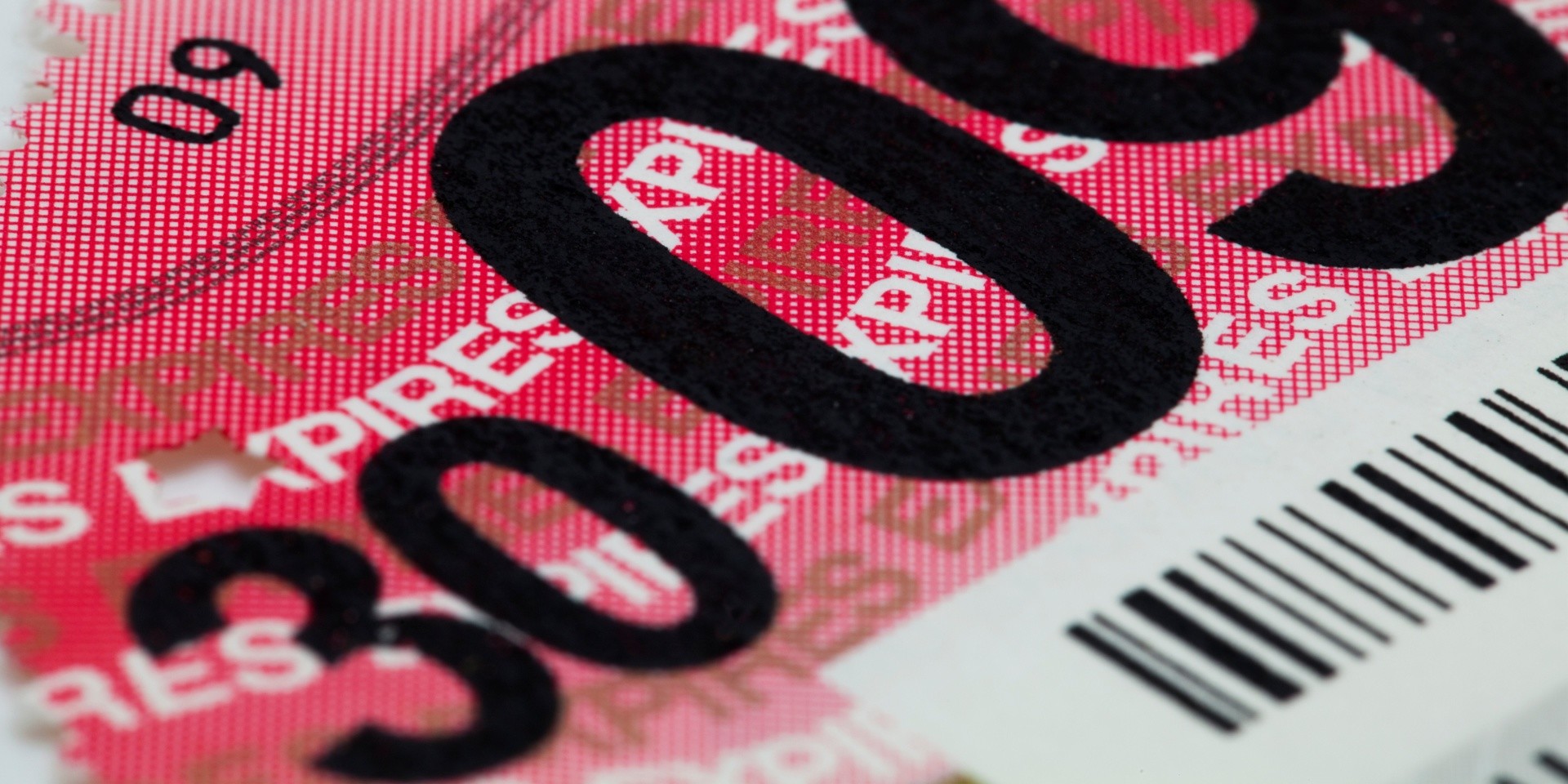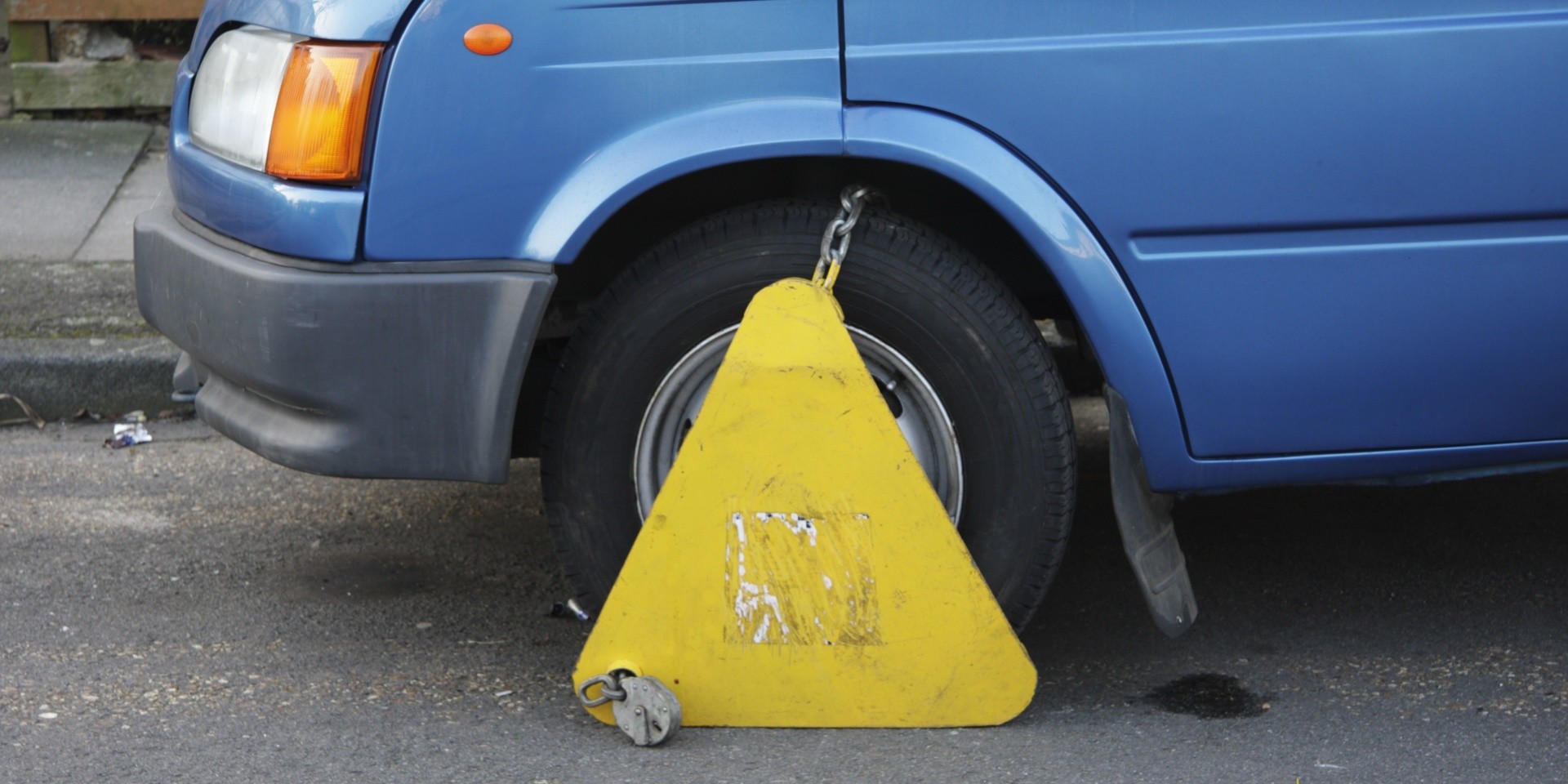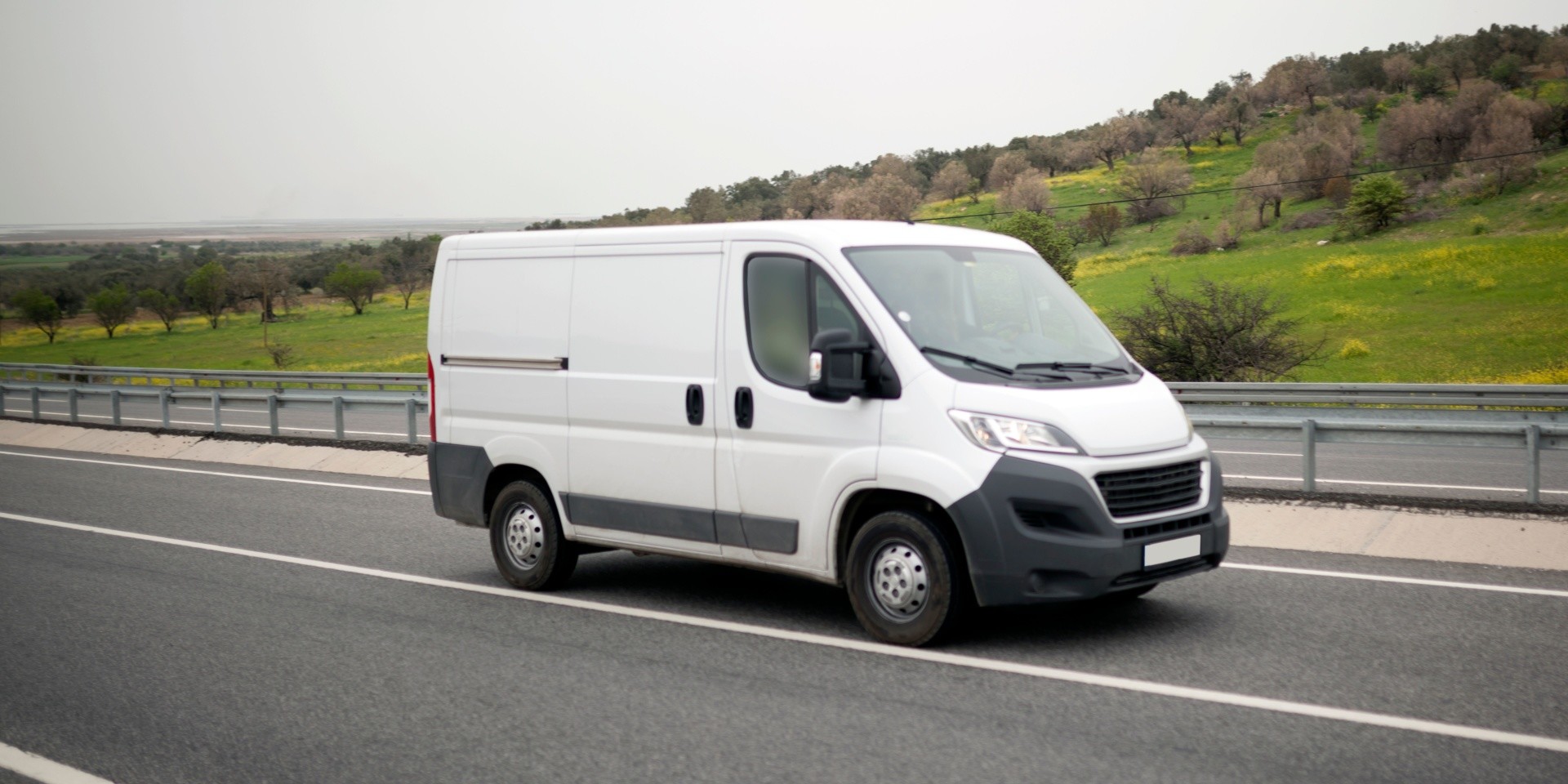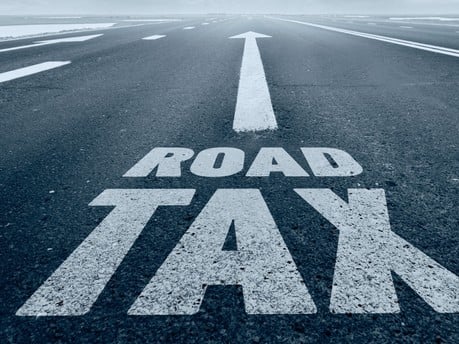Van Tax Guide: How Taxing a Van Works in 2024
Get up to speed with how van tax works in the UK
Taxing a van is a legal requirement in the UK, so choosing not to can leave you in hot water. So that van tax doesn’t seem such a taxing experience, here at Loads of Vans, we explain everything you need to know; from the costs of taxing a van to tax-deductible criteria, read on to find out how taxing a van works in 2023 and 2024…
Vehicle Excise Duty explained
Road tax is also referred to as Vehicle Excise Duty (VED). Before October 2014, taxed vehicles used to be identified by a physical tax disc which would be visibly placed on the inside of a van’s windscreen.

Nowadays of course, this process is entirely digital, so motorists no longer need to visibly display their road tax disc from their car or van. Instead, road tax is detected using ANPR (Automatic Number Plate Recognition) camera technology to ensure your van or car is road tax compliant.
Every vehicle driven on UK roads is subject to VED and the annual tax is payable to the Driver and Vehicle Licensing Agency (DVLA) on behalf of the government. Unless your van is classed as SORN (Statutory Off Road Notification), then driving an untaxed vehicle on a public road is illegal.
What are the penalties if you don’t pay van tax?
Any roadworthy vehicle in the country must have up-to-date road tax for it to be deemed legally drivable. Not taxing your vehicle is a punishable offence by law and can lead to serious consequences. The penalties for an untaxed van are as follows:
- If you’re the registered keeper of an untaxed vehicle you will be automatically issued a late licensing penalty (LLP) letter. The LLP fine is set at £80 which will be reduced to £40 if paid within 33 days.
- If you’re using an untaxed vehicle on a public road that hasn’t been declared as SORN you will receive an out-of-court settlement (OCS) letter. The OCS fine is set at £30 as standard, plus one and a half times the outstanding vehicle tax.
- If you’re using an untaxed vehicle on a public road that has been declared as SORN you will also receive an OCS letter. The fine for this is £30 plus twice the outstanding vehicle tax amount.
- If you’re keeping an untaxed vehicle and have not declared it as SORN you will receive an OCS which is set at a £30 fine plus one and a half times the outstanding vehicle tax.
Please be aware that if an LLP or OCS fine is not paid within the given timeframe, you will be referred to a debt collection agency that will continue to pursue the case on behalf of the DVLA. In some instances, your case may be taken to court which could result in a further £1,000 penalty or five times the amount of the tax owed - whichever is greater. Your van may be clamped and held until the case is settled and outstanding debt is owed.

How to check your van is taxed
If you’re unsure whether a vehicle is taxed, you can check for free via the government website. Here you’ll discover if a van has road tax which is up-to-date, or if it has been registered as SORN. All you’ll need to progress with the road tax check is the vehicle’s registration number to get started.
What’s the difference between van tax and car tax?
There are distinct differences when it comes to taxing a van or car - the main being how the overall VED cost is calculated. The amount of road tax you pay for a car is determined by its CO2 emissions in the first year of registration, followed by a flat rate fee based on the vehicle type thereafter.
No matter what fuel type a van is, all commercial vehicles are charged the same road tax rate. By comparison, van road tax is calculated by factoring in the following:
- The age of a van
- The engine size
- Its CO2 emissions
What qualifies as a van or commercial vehicle for road tax?
When it comes to taxing your van, you’ll want to understand what qualifies it as a taxable vehicle. As a general rule of thumb, road tax rates apply to all light commercial vehicles (LCVs) weighing up to 3,500kg - this includes pickup trucks too. Of course, there’s always an exception to the rule, so the best way to check if your van qualifies for road tax is to consult the vehicle's V5C registration document (logbook) which will explain more.

What are M1, M2 and N1, N2 vehicles?
Every V5C document (logbook) has a European classification section included. This determines what your vehicle is classed as using a series of lettered and numbered codes. There are four main categories of vehicles, which are:
- M - vehicles that carry passengers
- N - vehicles designed to carry goods
- L - two and three-wheeled vehicles
- T - agricultural vehicles, such as tractors and trailers
If a vehicle falls into the M or N category, they are classed as one of two types:
- A light-duty vehicle, such as a passenger car or van
- A heavy-duty vehicle, such as a truck, bus or coach
These are then broken down further into the following categories:
- M1 vehicles are classed as passenger cars
- M2 and M3 vehicles are minibuses, buses and coaches
- N1 vehicles are LCVs up to 3,500 kg
- N2 and N3 vehicles are heavy goods vehicles (HGVs) over 3,500 kg
All commercial vehicles 3,500 kg and under are classed as N1 vans.
How much is van road tax in 2024?
As mentioned above, all LCVs are subject to a flat road tax rate each year - although this may vary depending on the payment method chosen. The annual tax year runs from April to March across a 12 month period and is charged at £290 for the 2023/2024 tax year.
One-off 12 month payment | One-off 12 month payment by Direct Debit | 12 monthly instalments by Direct Debit | One-off 6 month payment | 6 months payment by Direct Debit |
£290 | £290 | £304.50 | £159.50 | £152.25 |
Do vans cost more to tax than cars?
It really does depend on the type of car when comparing the cost of van tax to car road tax rates. For example, a car with under 50 g/km of CO2 emissions is subject to £10 road tax per year, whereas, at the other end of the scale, a car emitting over 255 g/km of CO2 is looking at a charge of £2,365.
Considering van road tax is charged at a flat fee of £290 in 2022 and 2024, a van is only pricier to tax if a car’s CO2 emissions are under 150 g/km.
***Read also about - Van Depreciation Rates: Maximising Value for Your Investment
How do I pay for van tax?
Road tax/VED is payable to the DVLA online via the government website. Tax your van using a reference number that can be found on your V11 reminder, vehicle log book, or the green slip from the log book of your van if you’ve just bought it. Payment can be made as a one-off for the year via debit card, credit card, or can be made in monthly instalments by Direct Debit.

Can the cost of van tax vary?
Although road tax for vans isn’t split into separate tax bands like car road tax, there are some vans that are required to pay a different amount to the standard £290 charge in 2023 and 2024. This is due to the age of the van and engine size:
Vehicle and class | One-off 12 month payment | One-off 12 month payment by Direct Debit | 12 monthly instalments by Direct Debit | One-off 6 month payment | 6 months payment by Direct Debit |
Euro 4 light goods vehicles (TC36) registered between 1st March 2003 and 31st December 2006 not over 3,500 kg | £140 | £140 | £147 | £77 | £73.50 |
Euro 5 light goods vehicles (TC36) registered between 1st January 2009 and 31st December 2010 not over 3,500 kg | £140 | £140 | £147 | £77 | £73.50 |
Road tax for electric vans
Just like zero emission vans, electric cars are also exempt from paying road tax. In a bid to incentivise drivers to ‘go electric’, VED is currently charged at £0 per year for an electric van. It’s worth noting that only 100% electric vehicles are road tax exempt - hybrid and plug-in hybrid models are subject to the standard £290 VED charge in 2023 and 2024.
Road tax for pickup trucks
Pickup trucks are charged the same rate of road tax as conventionally-fuelled vans - in 2023 and 2024 this is a flat fee of £290.

What vans are road tax exempt?
Like with all other types of vehicles, there are certain vans that are exempt from road tax. As such, the following vans are free to tax:
- Electric vans
- Vans used by a disabled person
- Historic vans (these are classed as vehicles produced before 1st January 1982)
Please note that you will need to apply for tax exemption which you can do so on the government website.
How to cancel van road tax
If you need to cancel your road tax, then you’ll need to contact the DVLA via the government website to let them know you no longer have the van, or declare it ‘off the road’. There are a number of reasons you can cancel your van road tax:
- If the van is sold or transferred to someone else
- If the van taken off the road - also known as SORN
- If the van is written off - which will need to be confirmed by your insurance company
- If the van has been scrapped
- If the van has been stolen
- If the van has been exported out of the UK
- If the van has been registered as exempt from vehicle tax

Cancelling your road tax will entitle you to a refund for any full month(s) of remaining tax.
How to declare your van as SORN
To register your vehicle as off the road - also known as SORN - you’ll need to inform the DVLA that you’re doing so. This means your van will need to be stored somewhere like a private driveway or garage and not used for use on public roads. Apply online via the government website to SORN your van, starting the process by entering the 11-digit number that can be found on your V5C log book.
What happens to my road tax if I sell the van?
It’s important to know that when it comes to selling your van, the road tax isn’t automatically transferred. The first step is to inform the DVLA when you’ve sold the van that you’re no longer the registered owner, when your road tax will be cancelled. Following this, you’ll be refunded for any full month road tax still owed from that tax year, and the new owner will need to tax the vehicle again.
Benefit-in-Kind tax for vans
If you’re a business owner and regularly use a company van, you’ll no doubt take advantage of benefit-in-kind (BIK) tax. But what is benefit-in-kind tax and how do you pay it?
Benefit-in-kind tax is applicable if you drive a van for work that is provided by your employer. Essentially, these are benefits for your employees that aren’t included in their salary and include assets, such as company vans. Sometimes these types of benefits are also called company van tax.

As with road tax, BIK for vans is charged at a fixed rate, which you’ll only have to pay if your van is used solely for business purposes. If you use your van for personal use - such as school runs, shopping trips or weekends away - then you’ll need to pay BIK.
How much BIK will you pay for a van?
The amount of BIK your pay on a van can be worked out using the following method; you’ll need to multiply the tax band relevant to your income (this could be 20% or 40%) by the BIK tax value - for vans this is fixed at £3,600 for 2023 and 2024. We’ve created the table below to help:
Tax band percentage | Amount you’ll pay per year | Amount you’ll pay per month |
20% | £720 | £60 |
40% | £1,440 | £120 |
Company van tax on pool vans
Many business owners are keen to understand if they need to pay company van tax for pool vehicles - these are vans owned by a company that are used for shared work duties by a number of employees. As pool vehicles are not deemed a ‘benefit’, they are not a taxable entity - as long as you can prove so.
Is a commercial vehicle tax deductible?
If a van or commercial vehicle is purchased through a business, you are eligible to claim 100% tax relief during the year that vehicle was bought.
Paying tax on fuel supplied by an employer
If you’re using a company-owned van for private use, you will need to pay tax on the fuel used during those journeys associated with personal use. Your yearly fuel benefit will be classed as BIK, and for the financial years 2023 and 2024, this amount is charged at £688. As a taxpayer, the yearly amount you’ll pay for fuel tax on a van for private use is:
- £138 if you’re a 20% taxpayer
- £276 if you’re a 40% taxpayer
Can I tax a van without a Commercial Vehicle Roadworthiness Test?
A Commercial Vehicle Roadworthiness Test (CVRT) is an Irish-based scheme to help keep roads safe. If you’re based in Ireland and own a commercial vehicle that is more than one year old, it must have a valid Certificate of Roadworthiness (CRW) before you can tax the vehicle.
No job is too small
Discover the right van for the job here at Loads of Vans in North Cheam, South London. We have over 300 vans in stock and deliver NATIONWIDE, so whether you’re looking for a petrol, diesel, or electric model, you can count on us to keep your business moving.
Explore our range of commercial vehicles online, and get in touch to find out how we can help make your purchase more affordable thanks to our van finance offers - we’ll get you on the road in a new or used van in no time!


